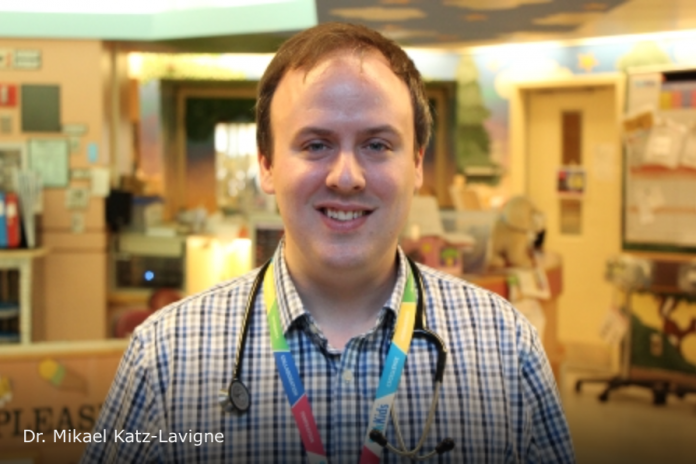Patients, parents and clinicians should have a voice in selecting and prioritizing child health research topics because they may have different priorities than health researchers, a new study says.
The study, which was presented at the Canadian Paediatric Society’s 92nd annual conference in Toronto, found the most frequently asked questions among parents and primary care physicians were related to:
-The impact of electronic devices on development
-Appropriate discipline strategies
-Interventions to promote healthy sleep
“When choosing how to prioritize research topics in an environment where there is limited funding, it’s important to involve patients and their families, as well as the front-line paediatricians and family doctors who provide care to children,” says Dr. Mikael Katz-Lavigne, lead author of the study, and Fellow in Academic General Paediatrics at The Hospital for Sick Children (SickKids). “Including them in the research process also encourages the study of outcomes that are important to both health-care consumers and providers.”
MORE: UNRAVELLING THE MYSTERY OF LYME DISEASE: WHY CANADA NEEDS TO DO MORE
The research team sent an online questionnaire to parents of children newborn to five years old enrolled in a primary care practice-based research network in Toronto and to paediatricians and family physicians in the Ontario Medical Association.
The questionnaire sought to identify the most important questions about keeping kids healthy as they grow up, and whether differences existed between questions submitted by parents and clinicians. Most of the questions pertained to nutrition and obesity, illness prevention, parenting and child behaviour.
There was general consensus between the 115 parents and 42 clinicians who responded to the questionnaires; however, parents were more likely to ask questions about how much screen time was healthy (8 per cent of parent submissions vs. 4.6 per cent of clinician submissions) and sleep (8.7 per cent vs. 6.3 per cent) than the clinicians.
The parents who participated all had children enrolled in TARGet Kids! (The Applied Research Group for Kids!), a collaborative project between SickKids and St. Michael’s Hospital that brings together child health researchers and community practitioners with the goal to improve children’s health through effective and timely primary care.
MORE: HELPING KIDS REACH THEIR FULLEST POTENTIAL
“Involving patients, families and clinicians in setting research priorities is part of the growing emphasis on patient-centered health care. Since patients are the ones trying to remain healthy or who experience illness firsthand, their priorities are often different than those of researchers, and they may have different views on how to measure outcomes,” says Dr. Katz-Lavigne. “In the past, researchers made all of the decisions about which topics to study, but our project identifies topics that will promote buy-in from the public and decrease waste in scientific research.”
Parents and clinicians’ top 10 research questions in paediatric preventive care are expected to be published at a later date in a peer-reviewed journal.
This paper is an example of how SickKids and St. Michael’s Hospital are contributing to making Ontario Healthier, Wealthier and Smarter. www.healthierwealthiersmarter.ca.




